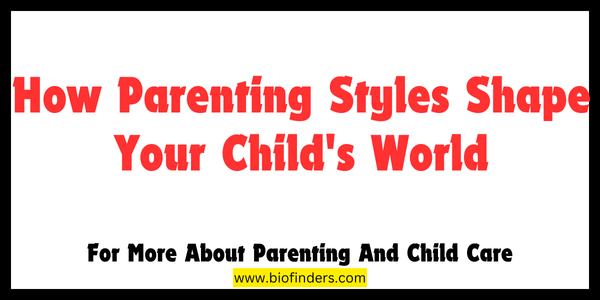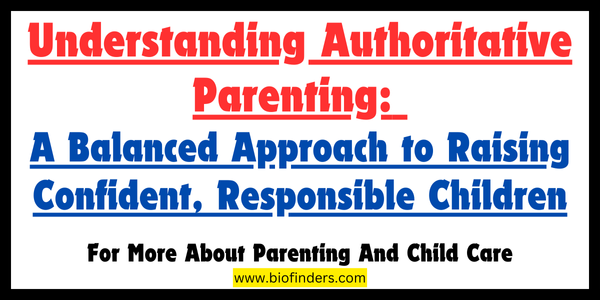Everyone thinks his/ her parenting style is perfect but the truth is, there are no perfect parenting styles. However, research has identified several common approaches and their impact on children. Let’s delve into the fascinating world of parenting styles and explore how they influence the little builders of tomorrow.
Demystifying Parenting Styles: A Crash Course
Imagine a spectrum. On one end lies strict control, on the other, boundless freedom. Somewhere in between lies a balance – a nurturing environment with clear boundaries. This spectrum represents the four main parenting styles:
- Authoritarian: Think firm rules, high expectations, and little room for negotiation. Authoritarian parents prioritize obedience and often use punishment to enforce rules.
- Authoritative: This style strikes a balance between warmth and control. Authoritative parents set clear expectations but are also open to communication and explanation. They provide guidance and support while encouraging their children’s independence.
- Permissive: These parents prioritize freedom and self-expression. Permissive parents may have few rules or allow their children to set them. While offering a nurturing environment, they may struggle to provide structure and discipline.
- Uninvolved: This style is characterized by a lack of involvement in the child’s life. Uninvolved parents may be emotionally distant or physically unavailable. They provide minimal guidance and support.
Building the Blocks of Emotion: How Parenting Styles Shape Emotional Intelligence
A child’s emotional landscape is a complex one. Parenting styles play a crucial role in shaping a child’s ability to understand, manage, and express their emotions – a skillset known as emotional intelligence.
- Authoritarian parents may inadvertently suppress emotional expression. Children raised in this environment may struggle to identify and communicate their feelings, leading to anxiety or frustration.
- Authoritative parents create a safe space for emotional exploration. By validating their child’s feelings and teaching healthy coping mechanisms, they equip them with the tools to navigate the emotional rollercoaster of life.
- Permissive parents may struggle to set boundaries around emotional expression. This can lead to children who struggle to self-regulate their emotions or who act out in unhealthy ways.
- Uninvolved parents leave children feeling emotionally unsupported and confused. Without guidance, they may struggle to develop healthy coping mechanisms, making them more susceptible to emotional problems.
Building Bridges of Connection: How Parenting Styles Influence Social Development
Social interaction is a cornerstone of a healthy childhood. Parenting styles play a significant role in shaping a child’s ability to form and maintain positive relationships.
- Authoritarian parents may inadvertently hinder social development. Children raised in a rigid environment may struggle with social cues, have difficulty making friends, and lack empathy for others.
- Authoritative parents foster social development by encouraging healthy interactions with peers. They provide opportunities for social play, teach important social skills, and model positive ways to resolve conflict.
- Permissive parents may give their children too much freedom, leading to social difficulties. Without guidance, children may struggle with social boundaries, respect for others, and conflict resolution.
- Uninvolved parents leave children feeling isolated and lacking the social skills necessary to form healthy relationships. They may struggle with communication, empathy, and navigating social situations.
Building the Scaffolding of Thought: How Parenting Styles Influence Cognitive Development
A child’s mind is a curious and ever-growing sponge, absorbing information and developing cognitive skills at a rapid pace. Parenting styles can significantly impact this process.
- Authoritarian parents may stifle a child’s natural curiosity and desire to explore. Strict rules and limited opportunities for independent learning can hinder cognitive development.
- Authoritative parents provide a stimulating environment that encourages exploration and critical thinking. By offering open-ended questions, opportunities for problem-solving, and exposure to new experiences, they help their children build strong cognitive skills.
- Permissive parents may not provide enough structure and guidance for optimal cognitive development. Without clear expectations or opportunities to practice important skills, children may struggle to reach their full potential.
- Uninvolved parents leave children feeling unsupported and lacking the stimulation necessary for cognitive growth. They may fall behind in important developmental milestones and struggle
The Power of Balance: Fostering a Growth Mindset Through Parenting
While research highlights the influence of parenting styles, it’s important to remember that children are unique individuals. Their temperament, genes, and life experiences also play a significant role in their development. The good news is that most parents naturally blend elements of different styles.
The key takeaway? Focus on fostering a growth mindset. This means encouraging your child to see challenges as opportunities to learn and grow. Authoritative parenting, with its emphasis on clear expectations, open communication, and positive reinforcement, is often seen as the most effective approach for promoting a growth mindset.
Here are some tips to nurture a growth mindset in your child, regardless of your parenting style:
- Celebrate effort and persistence over raw talent or immediate success.
- Use mistakes as teachable moments to help your child learn and improve.
- Focus on progress, not perfection.
- Model a growth mindset yourself by embracing challenges and learning from your mistakes.
By providing a nurturing environment that encourages exploration, fosters emotional intelligence, and promotes healthy social interactions, you can empower your child to build a strong foundation for lifelong success. Remember, the most important aspect of parenting is the love, support, and guidance you provide, regardless of the specific label attached to your style.
Beyond the Styles: Additional Factors to Consider
While parenting styles offer a valuable framework, it’s important to consider other factors that influence child development:
- Cultural Influences: Parenting norms and expectations vary greatly across cultures. It’s essential to be mindful of your cultural background and how it shapes your parenting approach.
- Family Dynamics: The presence of siblings, single parenthood, or blended families can all influence parenting styles and child development.
- Individual Needs: Children have unique temperaments and needs. A flexible approach that adapts to your child’s personality is key.
- Life Experiences: Stressful life events or changes in the family dynamic can temporarily impact parenting styles and may require adjustments.
Remember, parenthood is a journey, not a destination. Embrace the joys, navigate the challenges, and most importantly, enjoy the incredible experience of nurturing the next generation


Leave a Reply